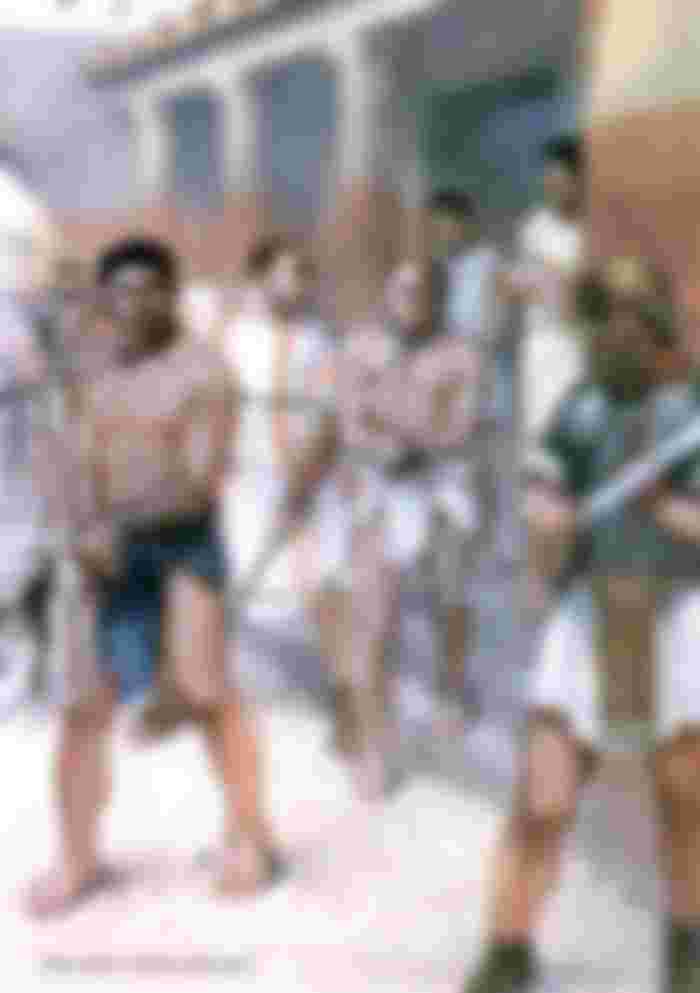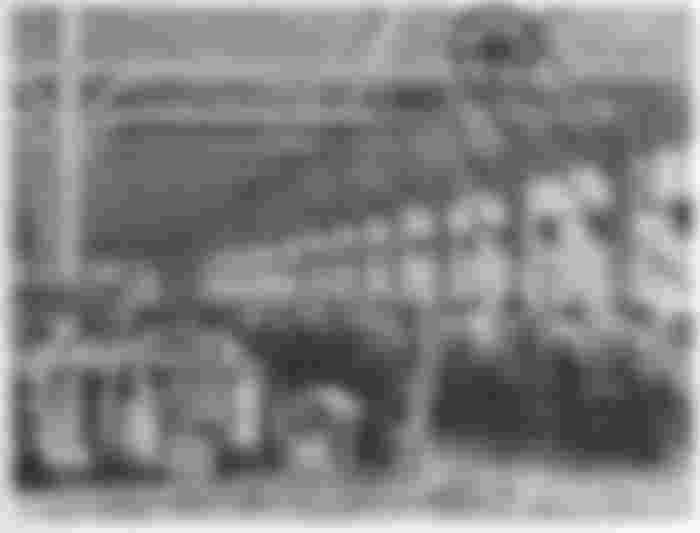The Painful History of Industrial Law
In the past I was writing some articles about painful history of some branches of medicine. I written about surgery, plastic surgery and psychiatry. So, if you are interested into that, you can read them by simply clicking on those links.
Today, I decided to write about painful history about one branch of law. As you can see by the title, it is industrial law, and trust me, it have history that was more than painful.
Industrial law is a branch of law and jurisprudence that is all about labour. It is about laws that are regulating labour and rights of workers.
Tomorrow is the 1st of May and that made me think a bit about workers, about people who were workers in the past, and people who were fighting for the rights of working people.
People were working since the beginning of everything, people were doing various things, because they had to. It is very simple, you have to do something in order to survive. That is why we can talk about workers, but we cannot talk about industrial law, because that work in the prehistory was not regulated by any law, and we did not have any sources of law that would regulate duties and rights of workers. Also, in this period everyone was a worker, everone had to do something, we hadn't rich people who were hiring others to work for them.
In the ancient period we had slaves in Greece, Rome, Egypt and other less known ancient civilisations. During this period slaves were working for food, place to live and clothes. We have some sources that say that slaves in Egypt were working for food and beer and that they also were getting some money for their work. This is showing us that those people were not as poor as we usually think when someone says 'slaves'.

Also, some sources say that in the ancient Greece they did not wanted to use some machines, that they knew for in that period, because they had many slaves, and it costed less to use the strength of those people, than to make machines. For example, in ancient Greece they knew for steam engine, but they never made it and they never used it, because coal and wood costed much more than slaves. That is showing us two things. First, they had many slaves, many people were not free, and second, there was many of them, much more than they actually needed, which meants that they were not working too much.

In ancient Rome, slaves were private property of their owner. He could kill them, sell them, use them and set them free. Slaves were not treated like human beings in Rome. In ancient Rome they had law for citizens of Roma, law for foregin people, and law for things. Law for things regulated everything about slaves.

Also, in Roma there were free people, who were service providers. Those people were making various things, and doing various things, which were very useful, but they were not very respected.
Anyways, they were free workers. But, we still do not have a employment, we only have a service contract.
Time is passing and we are now in the middle age. During this period most people were serfs. They were working on the land of feudals and they had to give part of their products to the feudal. They were not free and sometimes they had to work a lot to make enough for the feudals and for them, also they sometimes had to go to the war, when their feudal call them. They were in a bit better situation than slaves, but they still were not free, and we still cannot talk about employment.

In this period we also have manufacture, in middle age cities, there were people, masters, who were making some products or providing some services. Those people were working, usually for themselves, they had helpers, who were working for them and learning from them. Masters had power ower their tiros, and sometimes they treated them like things. But, later, when they learn everything about the proffession, they could leave their master and make their own small business.
That is the phrase, small business. Manufacture is pretty similar to the small business we have nowadays. People, who are working for themselves. Making something and selling it. Nobody guarantees them anything. You make it and if you are lucky enough, you will find someone to buy it.

In this period, guilds were formed. Guild is a association of masters who are doing same thing, for example guilde of bakers or guilde of blacksmiths. In those associatins they were helping each other when it was needed.
Important thing here is that again nobody had any obligation. You were not obligated to be in a guild. It could be good for you, but it was up to you.
And, what is also very important to say here, during the ancient period and middle age, state, government, rulers were not doing anything to protect working people. They depended on the people they were working for and on themselves. State was not interested.
Later, we will see that as religion was going 'down', human rights were going 'up'. As religion had less and less influence to people, human rights were more and more important. Working people, who was watched as weak and poor, realized how powerful they can be together.
Now, we will see how they realized how powerful they are.

Working class was formed during the 19th century. In this period those people forced liberal capitalism. That means that they were free. There was not any law that regulater slavery anymore. People were not slaves, they were workers. They could chose will they work. Actually, they could not, they had to work if they wanted to survive, but it up to them to chose will they work and eat or they will die.
In this period everyone worked, men, women, old people, children, everyone. Since the early childhood till death. People were dying in the mines and factories.

If you are interested into this topic, you can find many stories and many date about that in Industrial Law classbooks, in some movies, on the Internet, and in some novels written by Chalres Dickens. One of the most popular is definitely Oliver Twist.

That period was horrible for working people. As I said they were dying on their work places, because if they do not come to work they will not get paid which means they will not have money to pay rent, to buy food or medicines.
In this period we have a labour rent contract. That is a contract where the owner of factory, for example, is renting someone's labour. So, you work, you get money. You are selling your work. The moment you stop working is the moment when you will stop getting money. You are not slave by the law, but you are by the economy. You are free to stop working, but that will lead you to the death. Salaries were miserable, and people could not save money for the period when they are old, or for the case they get sick. That is why wery old people, pregnant women, sick people were working.
Conditions of work were horrible.

And people started to realize that this kind of, well I can say of living, because they work was the biggest part of their lives, is not leading anywhere.
That is the period where workers were making protests, they were destroying machines, they were attacking their bosses, and the states paid attention to that.
First laws that were regulating conditions of work, salaries and position of workers, were enacted.

And, now we can talk about employed people, about employment and employment contracts.
After that we have two world wars and we have some new ideologies, actually some old ideologies become the leading ones, one of them was nacism, which was not good at all for some groups of working people, and the other one was comunism, which was good for working people.
As time was passing, everything was happening much faster, workpeople are getting more and more rights, bigger salaries, insurance, retirement, shorter working time...
Now, we even have a holyday that is all about workingpeople and work in a good form. We are celebrating 1st of May as a day that is here to remind us of what workingpeople passed trough and about how working process should look like.
In modern world, we have some countries where working week lasts only 4 days, people in some countries work 6 hours per day, salaries are getting bigger and bigger, working process in any branches is getting easier for the workers. People are satiesfied and they are more and more productive.

Workingman is not a thing anymore, he is not there to work till he fall, he is a person, appreciated person, and we are grateful to him for everything.
Unfortunately, this medal has two sides, one of the, the bright one, is the one I just described. Workers in developed countries.
Other side, the dark one, are workingpeople in some other countries that are still very poor, where workingpeople still do not know how important they are and do not work for living, they still work to survive. We can still see children working, old people working, women and men working for 16 hours per day, and all that for a couple dollars per month.

It seems that some countries are still in the 19th century, and that has to change.
On this 1st of May, I want to remind all of you about that people, that children, that world. I want to talk about that. I want all of us to talk about that, because if we talk about that, those people will realize how much they can, they will rise their voice and they will solve their problems. They will change their world.
Everyone deserves to work for living and to live. Let's leave surviving in the 19th century and move on the the 21st century.
Please, think about this,
See you soon,
SuncicaZ!











